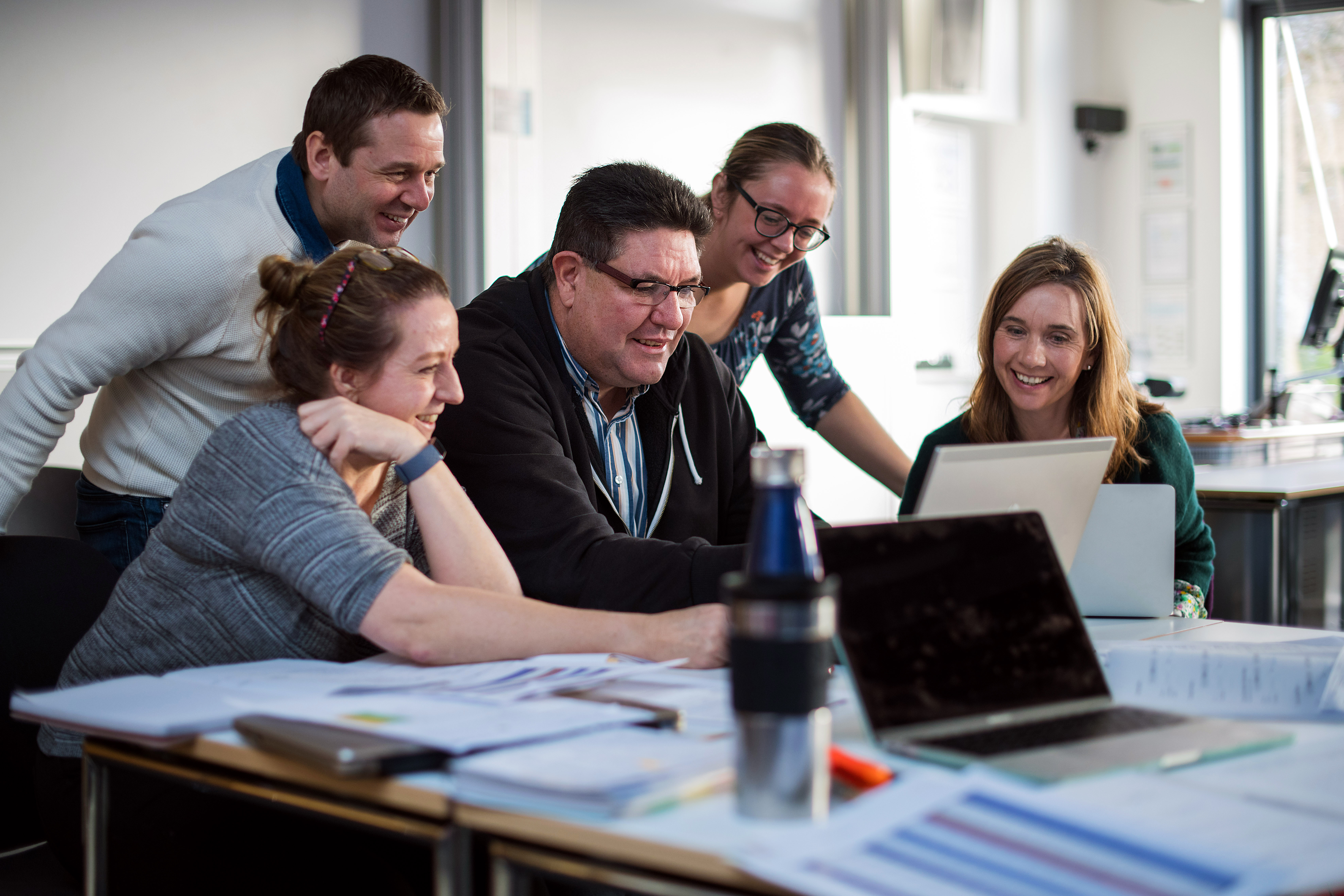I have received phenomenal support from the AccessAbility Team; they understood my learning needs and translated those into specific and achievable reasonable adjustments to support my studies. I would recommend that team without any hesitation
Anonymous student
Degree Apprenticeship Students
Wellbeing Services support our diverse degree apprenticeships community through a range of individual, group and workshop-based frameworks.
Degree Apprenticeship students are able to access all of our support while enrolled at Exeter, including while on placements and outside of term time.
We offer workshops and webinars that all students can attend.
Before you start your course, or as you register in your first term, you may want to know the advice, information and support available to you if you experience any of the following:
- Specific learning difficulty;
- Mental health difficulty;
- Physical disability;
- Sensory impairments;
- A long term medical condition.
Prospective students can arrange support by requesting an appointment through our Online prospective student form (downloadable version), attaching supporting medical evidence.
Current students, or those with a newly presenting disability, can book this appointment through our ILP request form.
Wellbeing Services support students through an Individual Learning Plan (ILP).
An ILP removes barriers that may prevent a student from participating at university, and minimises the impact that your health condition or disability may have on your ability to study.
It is a collection of adjustments to your learning, accommodation, exams, etc. that is agreed with your Wellbeing advisor, and put in place for the entire time you are on your programme.
Your ILP is put in place following a discussion with an advisor. Current students, or those with a newly presenting disability, can book this appointment through this form.
If you require changes to your ILP, you can request these in a short appointment with an advisor - and sometimes this can even be done by email. Please contact us on accessability@exeter.ac.uk with your suggested amendments and we will be happy to discuss further.
Wellbeing Services support Degree Apprenticeship students to claim funding from the Education and Skills Funding Agency (ESFA). This can help finance equipment or additional support.
When you discuss setting up support with your advisor, they will advise if you require a Study Needs Assessment (an appointment with the Exeter Access Centre which can be held in-person or remotely) in order to claim funding.
Your advisor will be able to help you with any questions about this process.
Sometimes your mental or physical health can affect your ability to study, or your studying can impact on your wellbeing.
Your Education Welfare Team are available to talk to you in a confidential and non-judgemental way about any issues you may need support with.
You can contact the team to make an appointment with an Advisor at the email addresses below. If you are unsure of your Education Welfare team, the support team in your Info Point/Hub will be able to put you in touch.
Education Welfare contact: |
Campus location: |
Disciplines supported: |
| welfare.buildingone@exeter.ac.uk | Building One, Streatham Campus |
|
| welfare.harrison@exeter.ac.uk | Harrison, Streatham Campus |
|
| welfare.peterchalk@exeter.ac.uk | Peter Chalk, Streatham Campus |
|
| welfare.stlukes@exeter.ac.uk | South Cloisters, St Luke's Campus |
|
Your Education Welfare Team can help with:
• Worries about your academic progress, due to a health or wellbeing difficulty;
• Signposting you to help you with difficulties relating to academic processes, such as mitigation and assignment submissions;
• Support around interrupting your studies or changing your mode of attendance;
• Information about Wellbeing Services' support and appointments with their advisors - the team can help you make the right appointment to
discuss mental health support, disability support or set up an Individual Learning Plan;
• One-off meetings to provide support around a specific study-related problem or issue;
• Ongoing support through the Health, Wellbeing and Support for Study process.
What is the Health, Wellbeing and Support for Study Procedure (HWSS)?
The HWSS procedure is a supportive procedure used when there are concerns about a student’s health and wellbeing.
A student may be struggling to either meet academic learning outcomes and course competencies or to manage other aspects of university life, and it is felt these difficulties are not likely to be resolved in a single meeting with support staff.
For full information on the HWSS procedure, including how the meetings are set up, and the possible outcomes, see the Education Welfare Team's webpage.

Starting the beginning of the apprenticeship scheme last year, I was nervous as with dyslexia and dyscalculia I have historically struggled with academic writing.
I was sceptical at first as software has not helped in the past but realised the programmes have come a long way since I last studied in 2004!
The tutor support and software have been a game changer and slowly increasing my confidence in my written work and I am planning on topping up to a MSc after the apprenticeship, which I previously believed to be impossible. Having the ability to apply my practical work to my portfolio to work towards the standards has been a really practical way of me demonstrating the skills required form my role. I am excited for the future.
Anonymised student feedback
